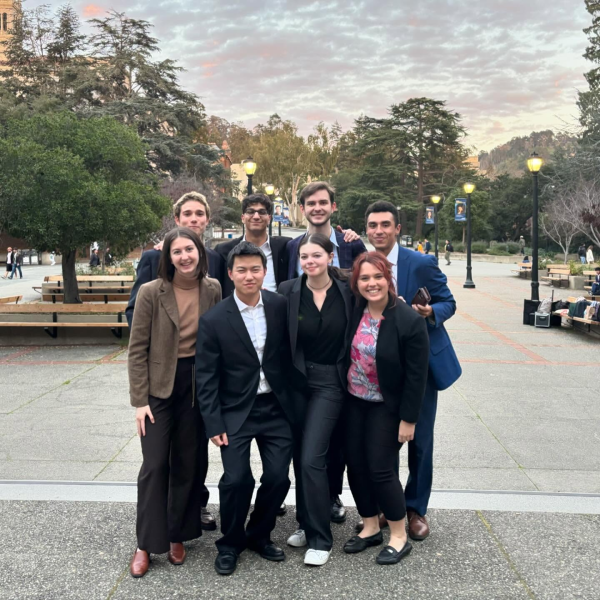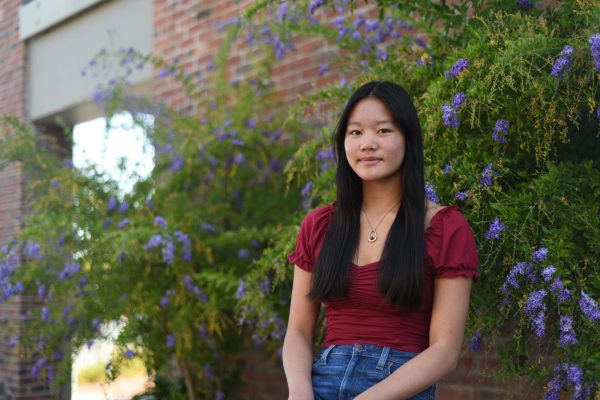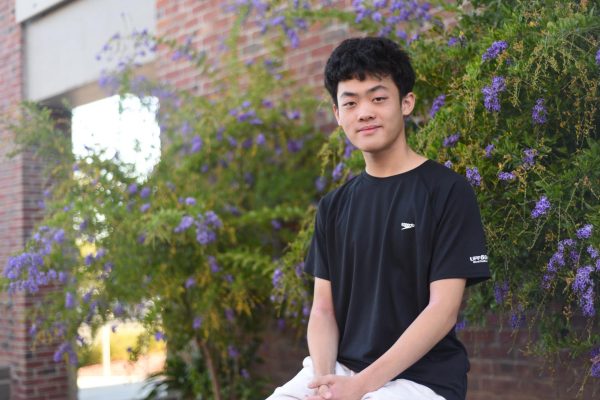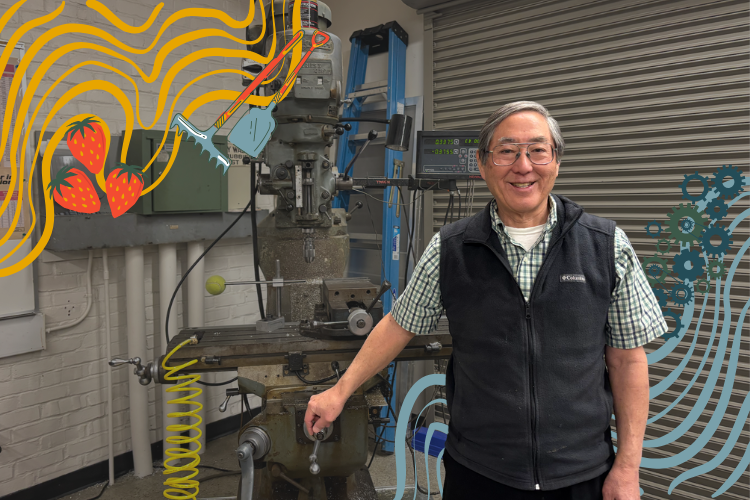As senior Katie Lee pushes off the starting block, everything fades away except the sound of her rapid pulse and the blur of the track sliding beneath her feet. Since sixth grade, running has anchored Lee’s everyday life as a source of motivation and connection, ranging from cheering for teammates at meets to conversing with friends post-practice around the Upper Field. The activity has ultimately grown into a community that she calls home at MVHS.
For Lee, a track athlete committed to Occidental College, pursuing track after graduating from high school was always part of her plan, whether it involved being on a collegiate team or joining a club, because of the close community it offers. Lee loves being a part of the track community because she finds it easier to make genuine friends through shared interests.

“You get to see a lot of people at their lowest and their highest, and you get to know them for them, and not necessarily for show,” Lee said. “You get to see them every day, so being a part of the community is easier.”
Similarly, Pomona College junior and MVHS ‘22 alum Dylan Yang says that the community within high school activities was especially important to him. As a Model United Nations member throughout high school, Yang made several close friends within the activity, spending time with them at conferences in the Bay Area. However, he says that the shift in environment in college can transform the social setting of an activity.
“I think the Model U.N. team in college has a little bit more of a party culture than is allowed in high school — most high schools probably cannot get away with the level of partying that some college extracurriculars can provide,” Yang said. “There’s nothing wrong with the college culture, but it wasn’t really my style. In extracurriculars where it’s not just you studying by yourself but hanging out with other people, the social aspect is important, and the social dynamics aren’t necessarily the same from high school to college.”
As a result of the differing social dynamics, Yang chose to pursue mock trial rather than continue Model U.N., which he discovered at a club fair his freshman year. He recalls being drawn in by the smart, competitive nature of the club members, seeing the activity as a way to further his interests in the political sphere.
Beyond an activity’s community, another key difference both Lee and senior Saanvi Goyal notice between activities in high school and college is the level of commitment and interest, a distinction they’ve observed through conversations with college students. In high school, students might pursue activities solely because they’re good at them or need something to occupy themselves with. But in college, Goyal says that students often continue extracurriculars out of genuine love and dedication. Goyal, who participates in speech and debate at MVHS, says this commitment fundamentally changes how people approach college activities.

“When people are pursuing things in college, it tends to be a lot more genuine, so you have people that are a lot more interested and really invested in what they’re doing,” Goyal said. “Whereas, in high school, it might be more of people trying things out and seeing what they can put on their college application. But by the time people get to college, because they’re really serious about it, the quality of those activities goes up by a lot.”
In the future, Lee aspires to stay involved in track not only as a college athlete, but as a mentor who can offer younger runners the same support and guidance that she has experienced. Specifically, Lee hopes to return to MVHS to coach. As a specialist in the 100 and 200-meter sprints, she hopes to eventually work with the current sprints coach, Isaiah Smith, on a regular basis.
“He’s there when I’m having mental breakdowns, he’s just always there to work through it and give me the reality check I need,” Lee said. “He’s given me more of the ability to look back on what I just ran and see, ‘How can I make it better?’ And I want to do that for other people, to make them love the sport as well, or to give them the ability to try and run better.”
Going forward, Yang hopes to continue pursuing mock trial throughout the rest of his college career. For MVHS seniors hoping to find activities to define themselves in college, Yang says that while they don’t have to throw out the activities and passions they already have, college is a place where they can find new passions and room for growth.
“College is much more varied,” Yang said. “It’s the early stages of college where you’re finding your new community. You’re finding your new extracurriculars that are a good opportunity for self-reflection and identifying what kind of social spaces you want, and what kind of things you want to spend your time doing. There’s a lot of opportunities, and I think it’s hard to go wrong, so just go with the flow.”











